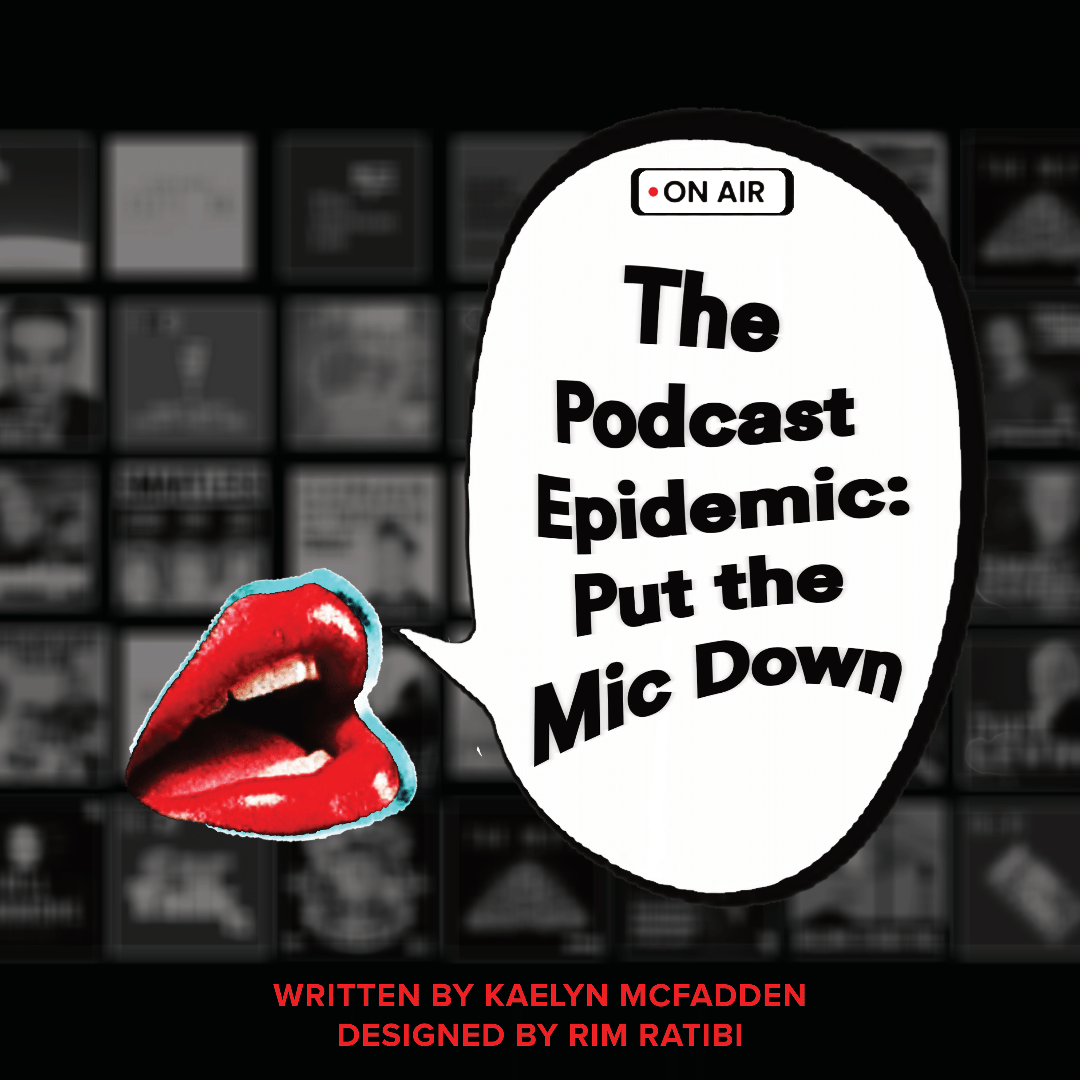
It feels as though there is a new podcast being created every day, whether it be someone trying to profit from their one second of fame or a group of friends wanting to have conversations for everyone in the world to hear. While podcasting has democratized media and provided diverse voices with a platform, its rise has also brought about significant challenges and negative impacts that warrant attention.
Starting a podcast has become remarkably simple, making it a medium that is a straightforward and achievable endeavor for almost anyone. Quality podcasting equipment is now widely available at various price points. Nowadays, decent microphones and headphones can be purchased at relatively low costs. Meanwhile, free or low-cost recording and editing software, such as Audacity or GarageBand, allows beginners to produce professional sounding podcasts without investing in expensive tools. Podcast hosting platforms have also simplified the process. Services like Podbean and Anchor offer user-friendly tools for uploading and managing episodes, and they handle distribution to major directories like Apple Podcasts and Spotify. This means podcasters can reach a wide audience with minimal hassle. Additionally, remote recording tools allow interviews and discussions to be recorded from anywhere, reducing the need for a physical studio. Social media and marketing tools further simplify promoting a podcast and engaging with listeners.
This accessibility fosters creative experimentation and innovation, allowing creators to explore niche topics and unconventional formats that might not be feasible in traditional media. However, the lack of rigorous vetting and professional oversight means that some content may lack depth, accuracy or thorough research. Overall, while podcasting’s accessibility promotes diversity and creativity, it also results in significant variability in content quality.
One way podcasts can go awry is through the spread of misinformation and the creation of echo chambers. Many podcasts these days seem to revolve around the “everyman.” Podcasts used to be educational, but now often consist of uninformative conversations that lack the appropriate knowledge to dive deeper. A group analyzed 36,000 episodes and found 70 percent of the most popular US podcasts had shared at least one claim debunked by fact-checkers. There are too many people thinking they’re so funny and unabashedly hilarious, failing to understand the consequences of speaking on something they are visibly not knowledgeable on. Some topics would be better reserved for group chats, or perhaps the Google search bar.
Nowadays, podcasts include anyone saying anything, making false information proliferate. As the challenge to verify facts and ensure accuracy increases, so does the potential for echo chambers. An easy way to understand echo chambers is by imagining a place where everyone just “echoes” your pre-existing beliefs. This can be a comforting place to many, surrounded by those who agree and connect with you. However, this breeds overconfidence, narrowed perspectives and polarization. Every like, view and comment you make online provides data for the platform. It can then understand and decipher your preferences from your interactions and further show you related content, creating and strengthening this echo chamber.
Podcasts used to attract a much narrower demographic, often appealing to niches and special interests with relatively low audiences by today’s standards. But the growing popularity of podcasts has made them wildly profitable. In 2006, only 22% of US adults were aware of podcasts, but by 2022, that number had increased to almost 80%. Today, they are run by media companies with producers, focus groups and big advertisers that have a lot more on the line. Spotify is the largest podcast platform, with a 33.7% share. Apple Podcasts is the second largest, with a 27.6% share. To many creators, their podcast is merely a product, not giving much thought to the audience beyond making more money from them. This makes it difficult for creators to be monitored.
The harmful impact of this media form has become a self-reinforcing cycle, producing the question: How do we break free? For starters, it is imperative to fact-check when learning something new, especially from those who are not considered “experts” in the field they’re speaking about. Engage in conversations with others. Don’t shy away from people with varying views or perhaps uncomfortable conversations. On social media, it is crucial to occasionally clear your feed. Reflect and think critically about the media you consume and the people you follow. As creators, you should be sure to verify your information before you share it on a platform. Hold yourself accountable for how you may influence and impact your listeners.
Although this may seem like a lot of work when you just want to doom-scroll or play a podcast while you drive to work, verifying information and being conscious of misinformation is becoming an increasingly crucial duty that everyone must partake in when consuming all types of media, even podcasts.
While podcasting has democratized media and created a platform for diverse voices, it also poses risk of misinformation and echo chambers. To navigate the landscape effectively, listeners should critically assess content and seek varied perspectives, while creators must prioritize accuracy in their messages. By committing to these practices, a podcasting culture can be cultivated that promotes informed dialogue while also being entertaining.